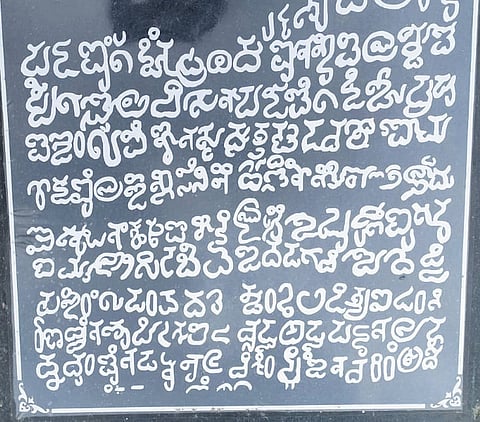

GUNTUR: Telugu Language Day (Telugu Bhasha Dinotsavam) is observed on August 29 to commemorate the birth anniversary Gidugu Venkata Ramamurthy, who popularised the Telugu idiom and promoted colloquial language.
Prime Minister Narendra Modi, in his Mann Ki Baat on August 25 mentioned about the importance of promotion of Telugu, and appreciated its sweetness and greatness. He said, ‘’Friends, this month on the 29th, is Telugu Bhasha Diwas. It’s truly an amazing language. I extend good wishes to Telugu-speaking people across the world on Telugu Bhasha Diwas.”
The day recognises the significance of the Telugu language, one of India’s oldest and most vibrant languages. The origins of Telugu language trace back to ancient inscriptions and texts, with its classical roots well-documented in literature and linguistic studies. The language evolved through various stages, influenced by political, social and cultural changes over the centuries.
Addanki in Bapatla district occupies a prominent place in the history of the Telugu language. The inscription which dates back to 848 AD contains the first ‘poem’ ever written in Telugu. PC Sai Babu, secretary of Forum for Better Bapatla, said, “The inscription is also known as Addanki Inscription and Panduranga Inscription. Panduranga was the minister of King Gunaga Vikramaditya of Eastern Chalukya dynasty.”
The inscription reads that Panduranga gifted some land to Adityabhattaraka after he conquered 12 kottams of land belonging to Boyas and their fortress.
“The inscription is a significant sign of the greatness of our Telugu language and should be highlighted during the Telugu Language Day celebrations and made popular,” he added.
Several poets who contributed to the Telugu literature in the 19th and 20th centuries are natives of Bapatla district. Rayaprolu Subba Rao coined the term Telugu Thalli. One of the Trinity of Poets who wrote Andhra Mahabharatam, Yerrapragada was the court poet of Addanki Reddy King.
Poet Srinadha, who popularised Prabandha style of composition, was also a member of the court.